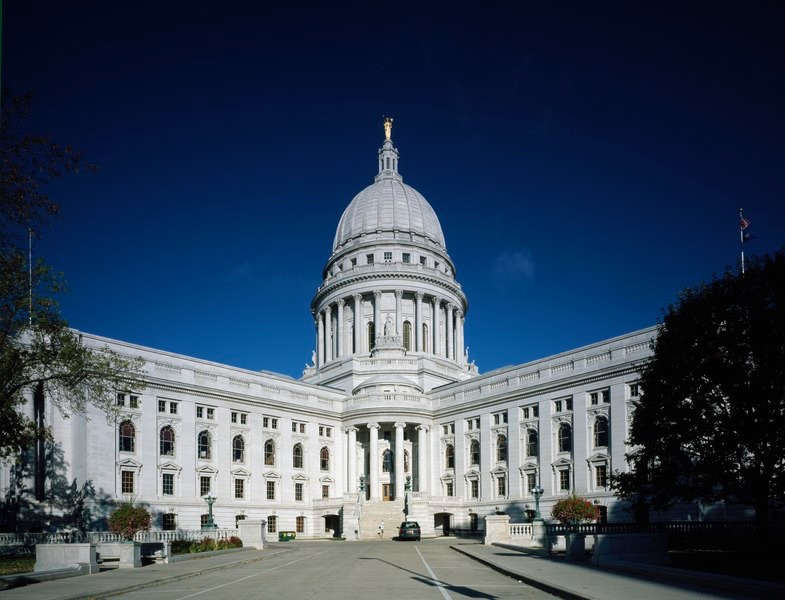
Last night, the Wisconsin state Assembly approved a $98.7 billion biennial budget along party lines. Assembly Republicans – who had all supported the budget – came a few votes shy of passing the budget with a veto-proof supermajority. Given that Republicans failed to rally the votes necessary for a supermajority, Wisconsin’s Democrat Governor – Tony Evers – will have the ability to partially veto certain provisions made in the budget. As a matter of fact, a few hours prior to last night’s vote, Governor Evers committed to issuing “as many partial votes as [he] can muster.”
The aforementioned budget includes over $4.4 billion in tax cuts – with $3.5 billion directed towards income tax cuts. Under the proposed budget, Wisconsin’s four tiered income tax structure would collapse to a three tiered one with the top rate falling from 7.65% to 6.5%, the middle two brackets merging from 5.3% and 4.65% respectively to 4.4%, and the lowest rate decreasing marginally from 3.54% to 3.5%. These cuts would be funded by the $7.1 billion in surplus revenues generated this year.
If signed into law, these cuts will make Wisconsin more economically competitive and allow the state to better compete for jobs and investment with neighbors like Illinois and Michigan that only charge flat income tax rates of 4.95% and 4.05% respectively. The benefits of state tax relief is made evermore apparent when one considers the Biden administration’s disastrous economic policies that have increased the cost of living and hampered economic growth.
The principal objection that many Assembly Democrats and Governor Evers had with the Republican backed budget is that it cuts $32 million worth of funding from the University of Wisconsin which was set to direct those funds towards expanding anti-meritocratic diversity, equity, and inclusion efforts. During the Assembly’s final debate before voting on the budget bill, Democrats went so far as to introduce two separate amendments to the budget aiming to restore the University of Wisconsin’s funding.
It remains uncertain what provisions of the budget Evers is eyeing to veto or whether or not the budget will even be signed into law. What is certain is that the tax cut provisions in the Assembly-approved budget would provide Wisconsinites with much needed income tax relief and make the state a more attractive place to live, work, and do business.

